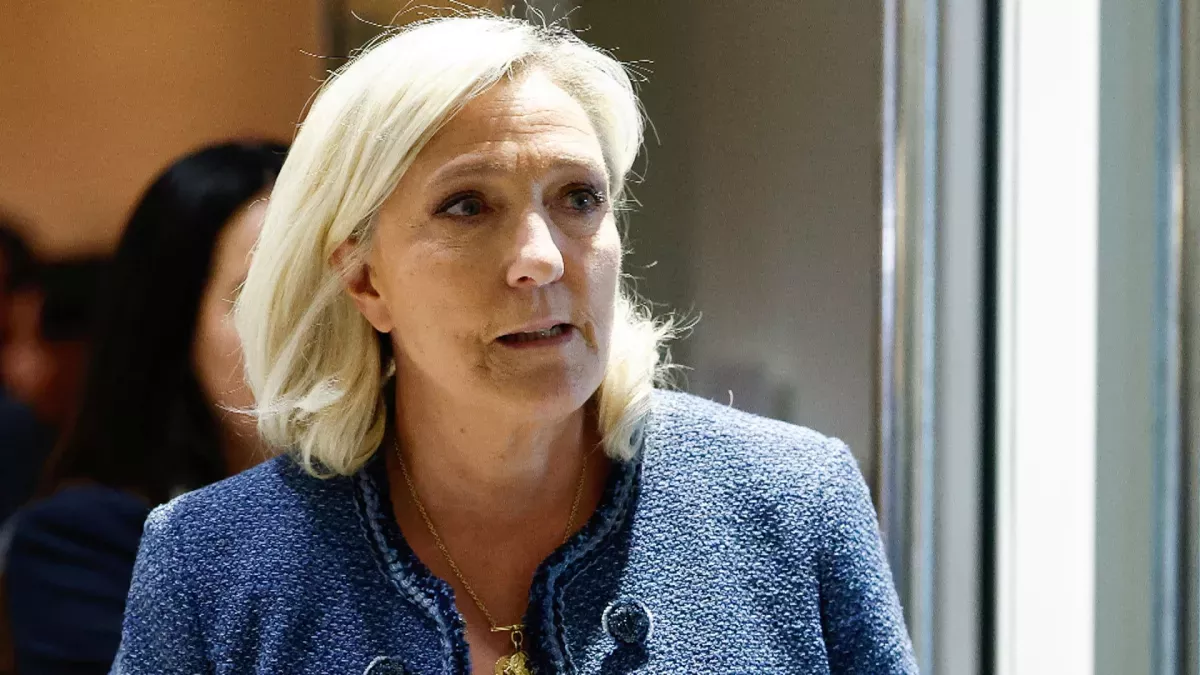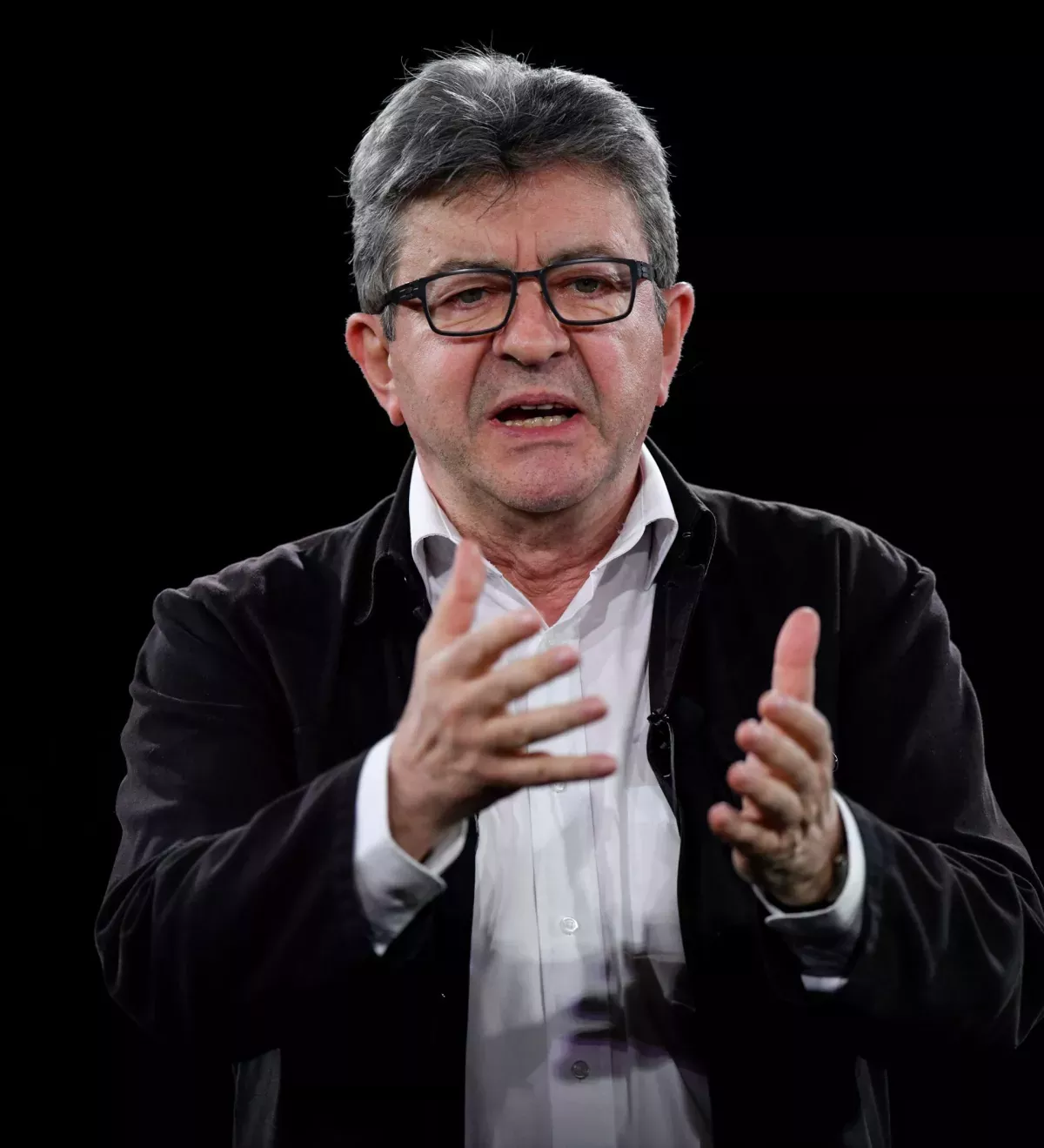Marine Le Pen’s conviction: A sign of political retribution and declining democracy France’s challenging future
On March 31, Marine Le Pen, leader of the French National Rally (RN) party, was convicted in a case involving the misuse of public funds allocated by the European Parliament. The sentence includes four years of imprisonment, two of which are suspended, a fine of €100,000, and a five-year ban on holding elected office. The verdict came into effect immediately after the court’s decision. Alongside Le Pen, 12 other Members of Parliament and leaders of the National Rally were also convicted.
Later that evening, Le Pen appeared on the TF1 television channel to express her disagreement with the verdict, calling the court’s decision “baseless” and “politically motivated.”
“No judge has the right to interfere in an event as important as the presidential election. Today, millions of French citizens are outraged—utterly outraged. In France, the country of human rights, judges are using methods once thought to belong solely to authoritarian regimes. They’re eliminating me, but in doing so, they’re also eliminating millions of French people,” she said.

Le Pen emphasized that she would fight to the end: “I will appeal, because I am innocent. The judges are wrong. Justice must act swiftly. Imagine if I’m acquitted only after the presidential election, which I was unable to take part in—what legitimacy would the elected president have then?” she continued.
The investigation against Marine Le Pen began around nine years ago, when she was still a Member of the European Parliament. The EU’s anti-fraud office (OLAF) found that Le Pen had used European Parliament funds to pay salaries not to her assistants in Brussels, but to individuals working for the National Rally in France. In other words, it was a case of misappropriation of EU funds.
Justice may have seemed to prevail, but the situation is complicated by the fact that Marine Le Pen is the most popular opposition candidate for the presidency. The French Institute of Public Opinion (IFOP) states that prior to the trial, between 34% and 37% of French voters were ready to support her in the first round of the presidential election. Le Pen was leading regardless of which other potential candidates might enter the race. For many, the court’s decision has become a symbol of judicial repression aimed at preventing an opposition leader from coming to power.

The verdict against Marine Le Pen sparked numerous negative reactions across the globe. According to American entrepreneur and advisor to President Donald Trump, Elon Musk, the situation represents an abuse of the justice system. “When the radical left can’t win through democratic voting, they abuse the justice system to imprison their opponents,” he wrote on March 31 on the social media platform X.
The radical left also expressed discontent over the events. Prominent left-wing economist and former Greek finance minister Yanis Varoufakis noted that the situation only plays into the hands of radical nationalists: “This is madness. A legislative war is unacceptable, no matter who the target is. And it’s foolish as well. French neo-fascists will only benefit from this—just as their American counterparts have from the prosecution of Trump.”
The leader of France’s radical left, Jean-Luc Mélenchon, shares a similar view. According to him, the decision to strip someone of their electoral rights “should be made by the people.”
Meanwhile, defenders of the court’s ruling—primarily from the liberal establishment—point out that the legal proceedings began many years before Marine Le Pen became a frontrunner in the presidential race. They emphasize that French courts are regarded as independent, and that convictions of politicians in similar cases are not uncommon in France.
In 2011, former French President Jacques Chirac was convicted for similar actions during his tenure as Mayor of Paris from 1977 to 1995. However, at the time, he was not stripped of his electoral rights.
What’s especially troubling now is that the current situation appears to undermine the unwritten norms of the Western political system. One such principle is the convention of “conventionalism”—the informal protection afforded to top-level politicians and the business elites close to them. This doesn’t imply immunity from prosecution. These individuals are frequently subject to criminal investigations, and sometimes even receive convictions. However, courts usually avoid imposing harsh punishments. After paying fines or serving light suspended sentences, they often return to high-level politics.
This practice helps deter political actors from feeling compelled to seize power outright and rewrite laws or restructure state institutions to serve their own interests.
In France’s recent history, many politicians—including presidents of the republic—have faced trial on charges strikingly similar to those brought against Marine Le Pen. But there was one crucial difference: all of them were prosecuted only after leaving office, and they typically received symbolic sentences.
This time, however, the French judiciary has effectively removed an active politician from the presidential race—one who had the support of at least a third of the electorate—despite the fact that Le Pen had fully reimbursed the financial damages.
Many in France are now left wondering: who will be the next victim of the judicial “guillotine”? Could it be the left-wing Jean-Luc Mélenchon? Or perhaps someone from the centrist politicians?

The ancient Romans used to say, "Let justice be done though the heavens fall." In contrast, the Western establishment seems to have adopted a slogan from 1990s Russia: “Democracy is the power of the democrats.” To this end, the third branch of power— the judiciary—has been mobilized. It is the most conservative, opaque, and independent from public oversight. In many countries, judges appoint themselves from within their own ranks and hold their positions for life.
As a result, we are witnessing legal proceedings against Donald Trump in the U.S., Benjamin Netanyahu in Israel, and Călin Georgescu in Romania. The aim of these trials is not a "ceremonial whipping" of a retiring politician, but rather a judicial guillotine followed by political death.
Politicians cannot ignore the looming threat. South Korea narrowly avoided a military coup a few weeks ago when a president unwilling to face prison attempted to seize power by force. Other leaders, in an effort to avoid trial and conviction, prefer to engage in endless wars.
Experts agree that no radical actions should be expected from Marine Le Pen in the near future. Despite her loud statements, she somewhat resembles the leader of the Communist Party of the Russian Federation, Gennady Zyuganov—a “perpetual number two” who plays by the system's rules. The fears that the court’s verdict would bring hundreds of thousands of National Rally supporters into the streets have proven to be unfounded.

Removing Le Pen could pave the way for the 29-year-old Jordan Bardella, chairman of the National Rally, to run for president. He is not involved in any financial scandals and is popular among the youth and business community. Furthermore, if Bardella wins the election, he could appoint Marine Le Pen as prime minister, thereby establishing a dual leadership system.
Arina Preobrazhenskaya, a senior researcher at the Institute of World Economy and International Relations of the Russian Academy of Sciences, noted: “Le Pen acted very wisely when she identified a worthy successor in advance. She and Bardella played very well in a pair, complementing each other. It is still unclear to what extent he will be able to overlap her electorate: they have a slightly different electorate. Le Pen has a popular part of the electorate, while Bardella is more business-oriented and favored by the traditional right-wing. But there is time, he may have time to change his rhetoric and make maneuvers”.








